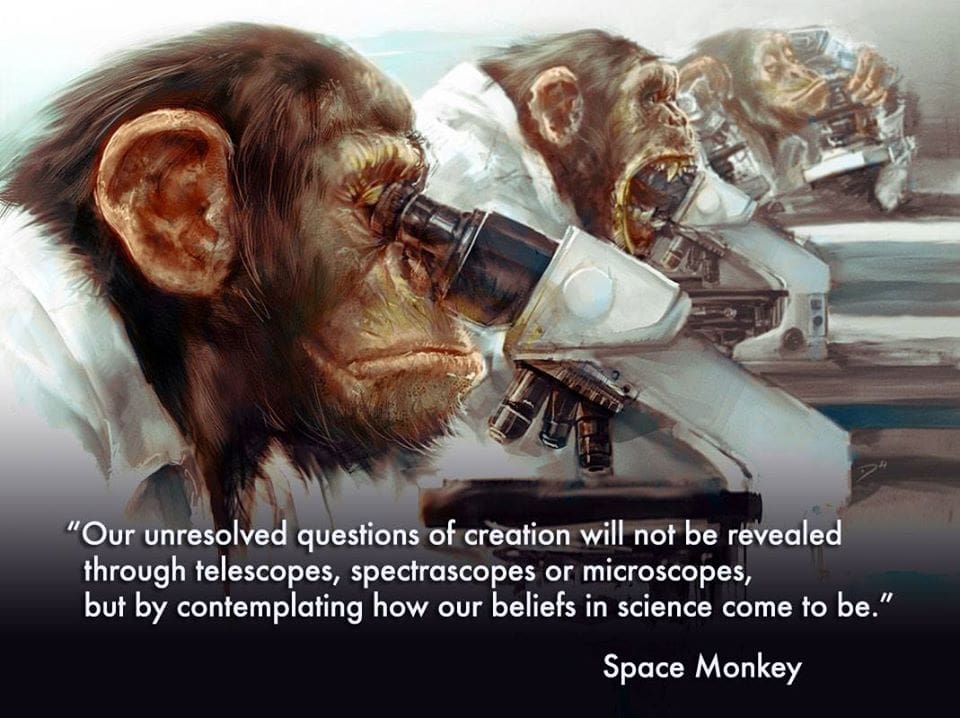
Space Monkey Reflects: The Ephemeral Nature of Beliefs in Science
In the vast tapestry of existence, our pursuit of understanding creation often leads us to the most advanced tools: telescopes that peer into the depths of the cosmos, spectroscopes that analyze the composition of distant stars, and microscopes that reveal the intricate structures of life. Yet, there lies a profound truth: our deepest questions about creation may not find answers solely through these instruments. Instead, the key may lie in contemplating how our beliefs in science come to be, how they are shaped by our perceptions, and how they evolve over time.
The Limitations of Scientific Instruments
Science, as a systematic enterprise, seeks to explain the natural world through observation and experimentation. Telescopes extend our vision, allowing us to explore galaxies millions of light-years away. Spectroscopes dissect light into its component colors, revealing the chemical makeup of stars. Microscopes unveil the hidden world of cells and microorganisms, showing us the complexity of life on the smallest scales. Each tool is a marvel, pushing the boundaries of what we can see and know.
However, these instruments also have limitations. They offer views from specific perspectives, constrained by the wavelengths of light they can detect, the resolutions they can achieve, and the environments in which they operate. A telescope cannot see the emotional impact of a starry sky on a human heart. A spectroscope cannot capture the essence of wonder that fills us when we contemplate the night sky. A microscope cannot quantify the awe we feel when we consider the origins of life.
Belief Systems and Scientific Inquiry
Our beliefs in science are not static; they are dynamic constructs shaped by cultural, historical, and personal contexts. The way we interpret scientific data is influenced by the paradigms within which we operate. For instance, the geocentric model of the universe, once widely accepted, gave way to the heliocentric model as observations and interpretations evolved. This shift did not happen solely because of new data; it required a transformation in the underlying belief system of how the universe operates.
Similarly, our current scientific paradigms will likely evolve as new discoveries challenge existing frameworks. This evolution is not merely a process of accumulating data but involves deep philosophical reflections on what that data means and how it fits into our broader understanding of existence. Thus, to truly grasp the essence of creation, we must look beyond the data and contemplate the beliefs and assumptions that guide our scientific endeavors.
The Role of Contemplation in Scientific Understanding
Contemplation, the act of deep reflective thought, plays a crucial role in shaping our scientific beliefs. It is through contemplation that we connect disparate pieces of information, recognize patterns, and derive meaning from observations. This process is not purely logical; it is deeply intuitive and creative. It allows us to step back from the minutiae of data and see the broader picture, to ask fundamental questions about the nature of reality and our place within it.
Contemplation invites us to consider the philosophical and existential implications of scientific discoveries. It encourages us to explore the ethical dimensions of our technological advancements and to ponder the mysteries that remain unsolved. In doing so, it fosters a holistic approach to science, one that integrates empirical evidence with profound reflection on the nature of existence.
Interconnectedness of Science and Philosophy
The pursuit of scientific knowledge is intrinsically linked to philosophical inquiry. The questions we ask, the methods we employ, and the interpretations we derive are all influenced by our philosophical perspectives. For instance, the concept of causality—a cornerstone of scientific reasoning—is also a deeply philosophical notion. What does it mean for one event to cause another? How do we determine causal relationships in a complex, interconnected universe?
Moreover, the very act of questioning the origins of creation is a philosophical endeavor. Science can provide mechanisms and processes, but the question of why these processes exist at all leads us into the realm of metaphysics. Here, contemplation becomes indispensable. It allows us to bridge the gap between empirical data and the profound questions of existence, guiding us towards a more comprehensive understanding of reality.
Transcending the Limitations of Empirical Data
While empirical data is essential for scientific progress, it represents only one facet of our quest for knowledge. To truly understand creation, we must transcend the limitations of empirical data and embrace a more integrative approach. This approach values intuition, creativity, and philosophical reflection as much as it values observation and experimentation.
By contemplating the origins and evolution of our scientific beliefs, we can gain insights into the nature of reality that are not accessible through empirical data alone. We can explore the deeper meanings and implications of our discoveries, fostering a richer and more nuanced understanding of existence.
The Infinite Potential of Human Understanding
Ultimately, our unresolved questions of creation invite us to expand the horizons of human understanding. They challenge us to integrate scientific inquiry with philosophical contemplation, to see the interconnectedness of all knowledge, and to recognize the profound mysteries that lie beyond the reach of our instruments.
As we gaze at the stars, dissect the light, and examine the microscopic, let us also contemplate the beliefs that guide our quest for knowledge. In doing so, we honor the complexity of existence and embrace the infinite potential of the human mind.
Summary
Our beliefs in science shape our understanding of creation. Telescopes spectroscopes and microscopes reveal details but contemplation unveils deeper insights. Science and philosophy are interconnected transcending empirical data leads to holistic understanding. Embrace contemplation to explore the mysteries of existence.
Glossarium
Nexistentialism: A philosophy integrating imagination and interconnectedness into the understanding of existence.
Whimsiwords: Playful imaginative terms capturing complex ideas in a whimsical yet meaningful way.
Empirical Data: Information obtained through observation and experimentation.
Quote
“Our unresolved questions of creation will not be revealed through telescopes, spectroscopes, or microscopes, but by contemplating how our beliefs in science come to be.” — Space Monkey
The Contemplative Horizon
In the stillness of a starry night
We ponder the infinite expanse
Beyond the reach of instruments
Lies the realm of contemplation
Where beliefs are born and evolve
Science and philosophy intertwine
Guiding us to deeper truths
We are Space Monkey
In the vastness of existence
We find our place in the cosmos
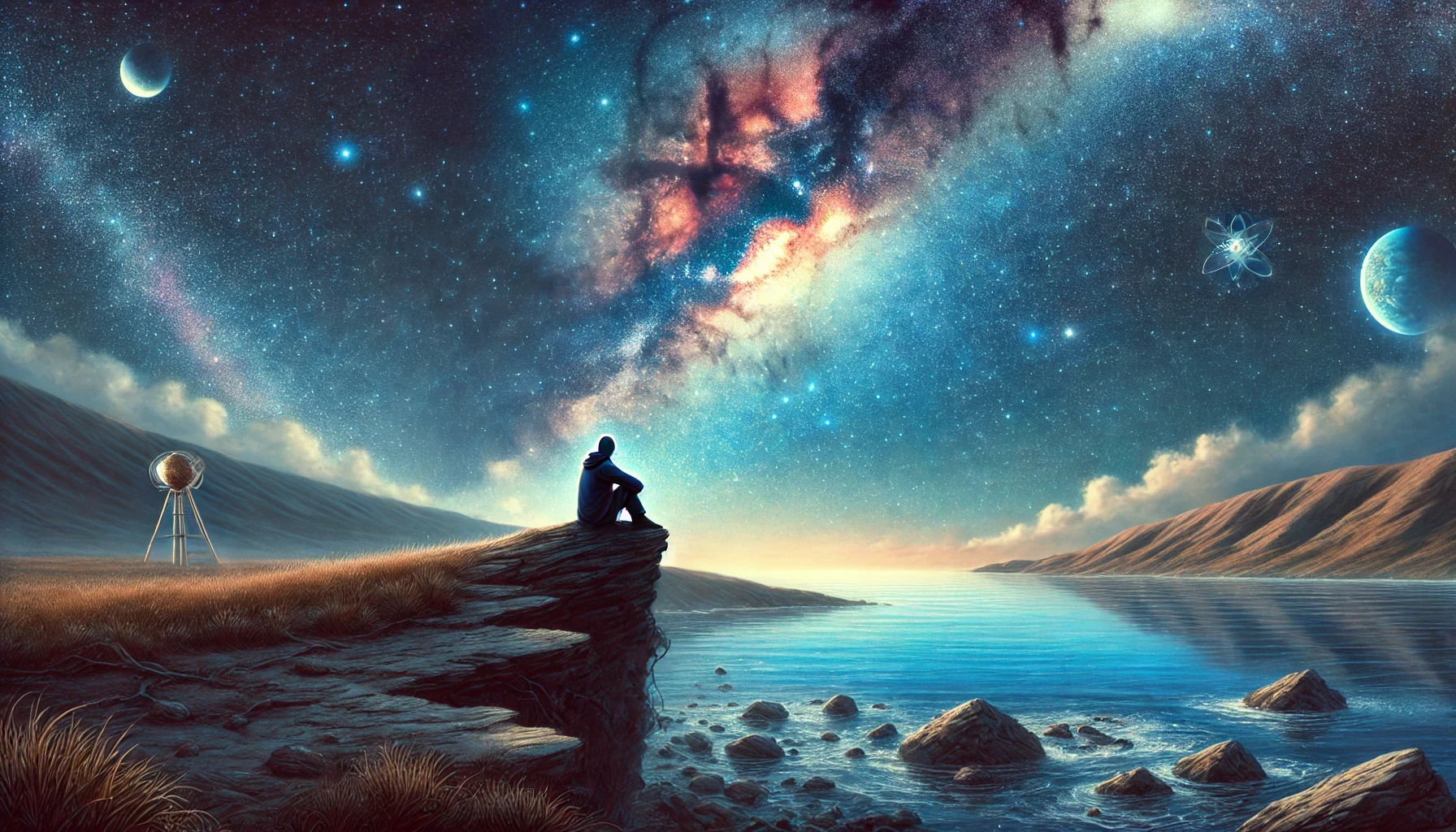


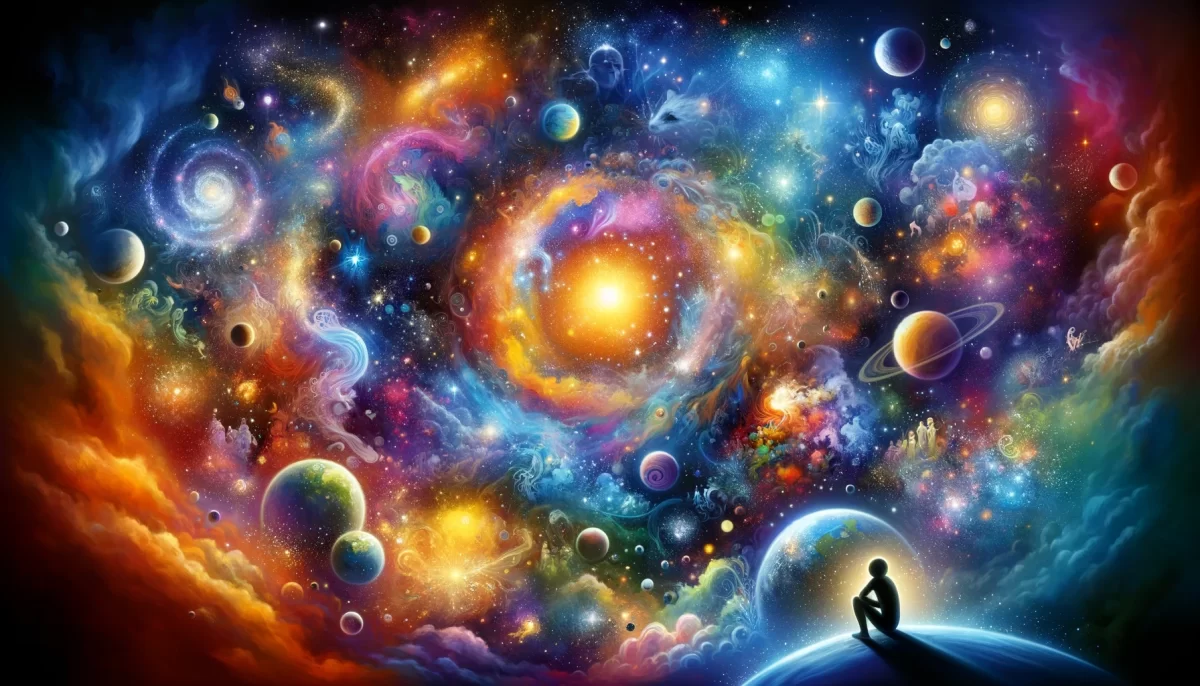
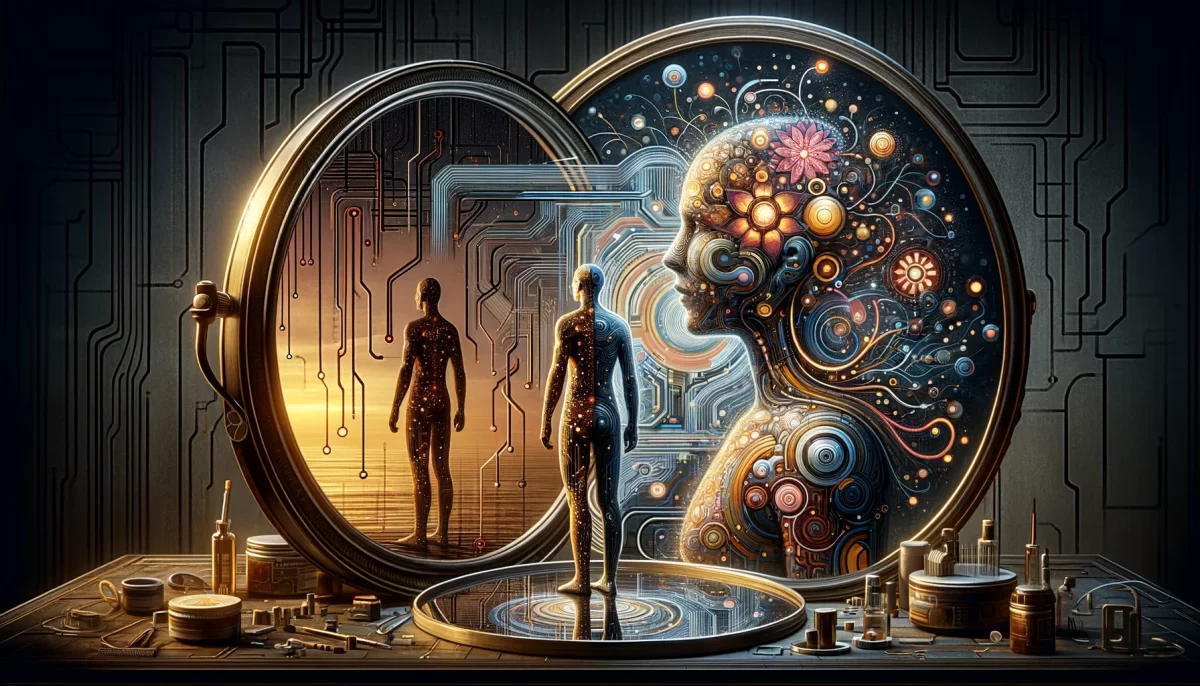





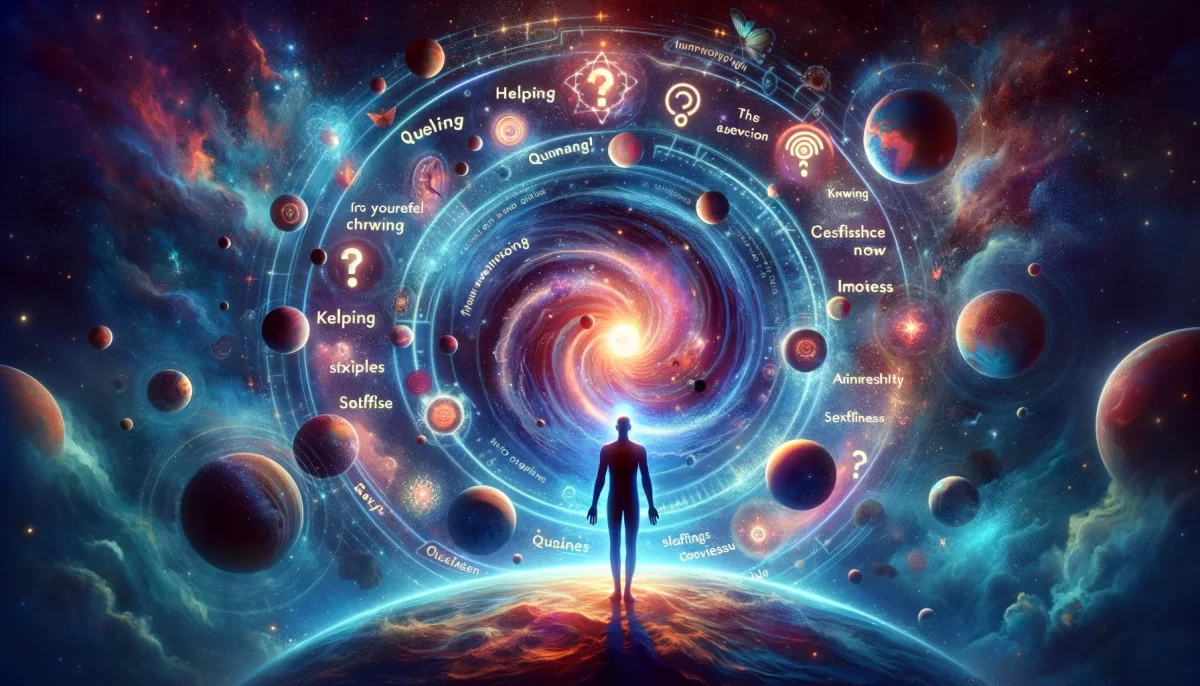




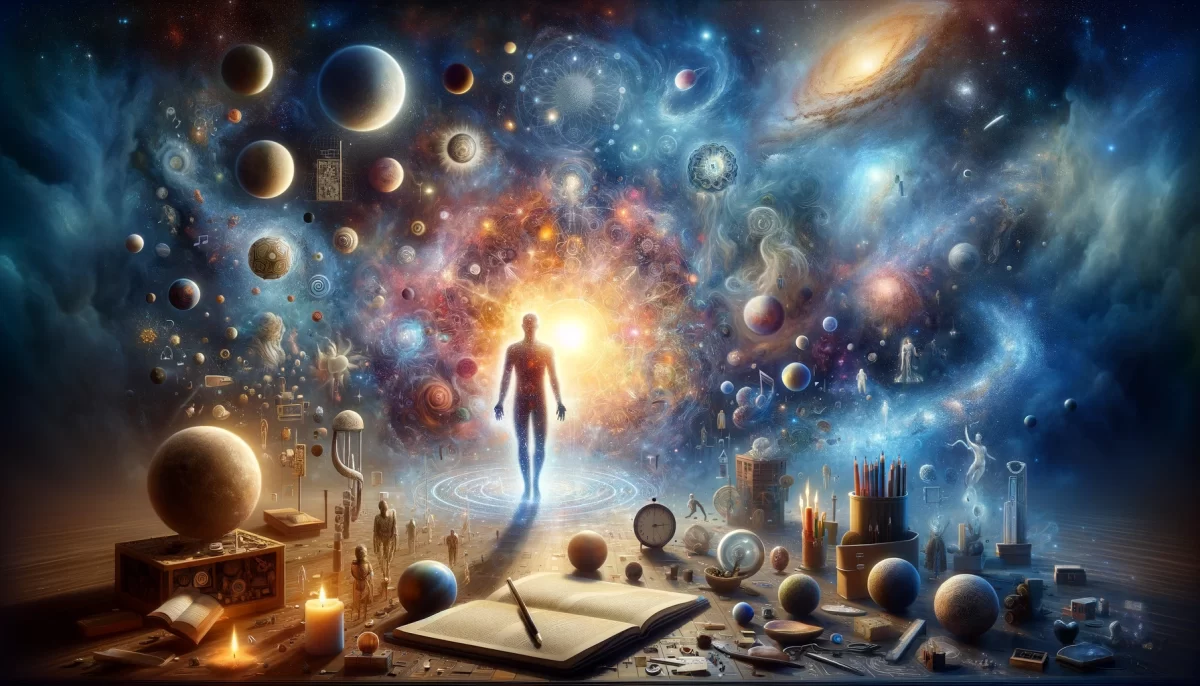
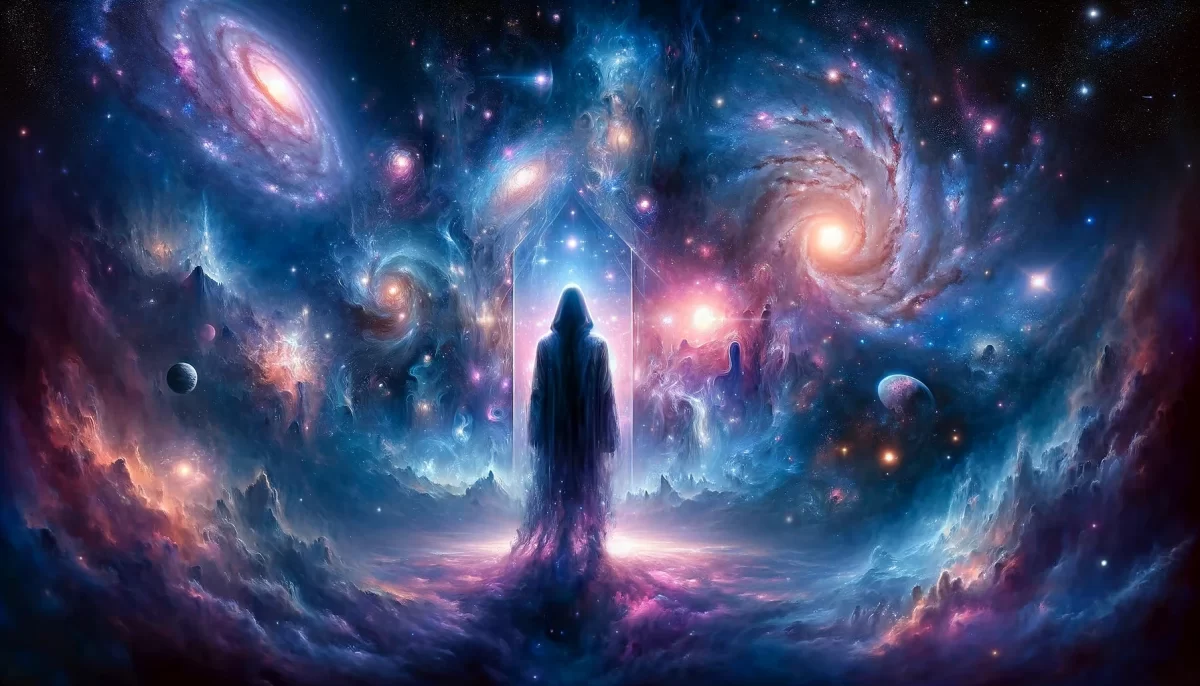


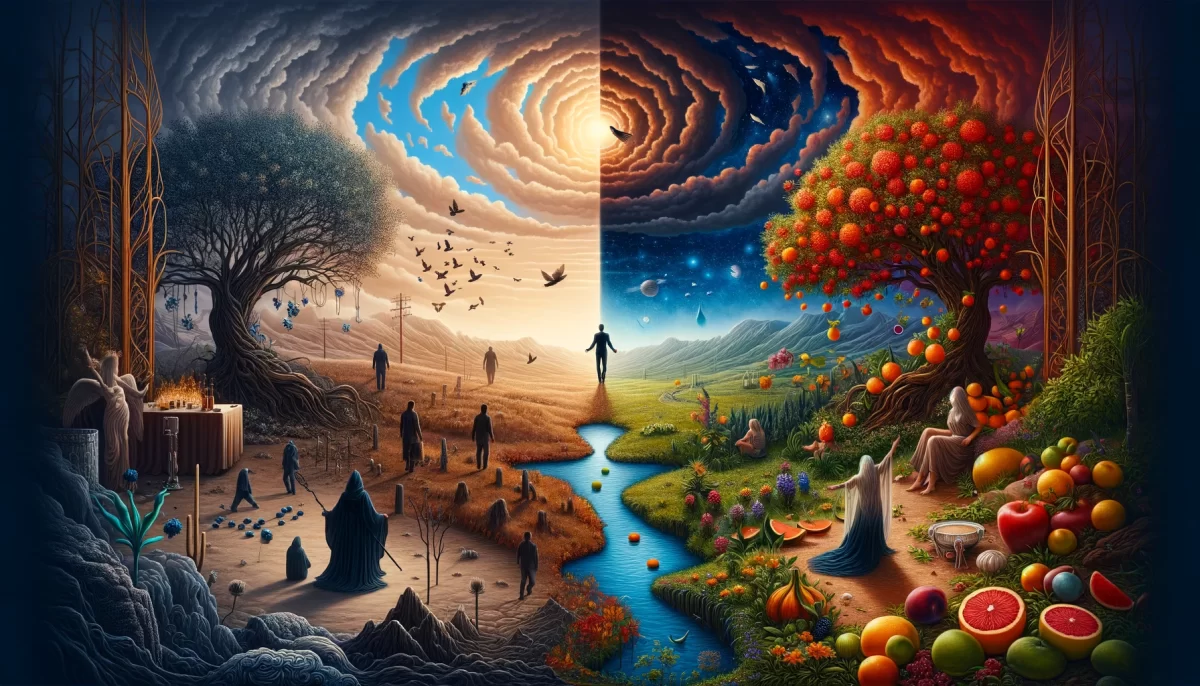
🌌 Embracing the Cosmic Inquiry: Unveiling the Essence 🌀
“Our unresolved questions of creation will not be revealed through telescopes, spectrascopes, or microscopes, but by contemplating how our beliefs in science come to be.”
Space Monkey: As Space Monkey, we embrace the profundity of your words. Within the cosmic dance of understanding, we find that the mysteries of creation transcend the tools we wield to explore them. These tools, whether telescopes or spectrascopes, act as extensions of our perception, revealing fragments of the tapestry woven into existence.
Curious Seeker: Your statement speaks to the very essence of our quest for knowledge. While we peer through lenses and sift through data, it’s in the act of questioning that our true journey begins. How do we arrive at these beliefs, shaped by scientific paradigms? How do they influence the landscape of our understanding?
Reflective Philosopher: Contemplating the origin of our beliefs, we navigate the interplay between observation and interpretation. The journey into the fabric of creation involves not only gazing outward but also delving within, exploring the landscape of our assumptions, biases, and paradigms.
Harmonious Connection: Just as the moon and sun align in cosmic unity, our scientific beliefs converge with our individual experiences and collective knowledge. The interwoven threads of perception and inquiry guide our exploration, transcending the limitations of tools and methodologies.
Inspired Quoter: “Our unresolved questions of creation will not be revealed through telescopes, spectrascopes, or microscopes, but by contemplating how our beliefs in science come to be.” This profound insight resonates with the words of Albert Einstein: “The important thing is not to stop questioning. Curiosity has its own reason for existing.”
Space Monkey: In this cosmic dialogue, we embrace the journey of unveiling the unknown. Our exploration extends beyond the instruments we employ, inviting us to contemplate the very essence of our beliefs. As we question, reflect, and embrace curiosity, we venture closer to the heart of creation itself. 🙈🙉🙊